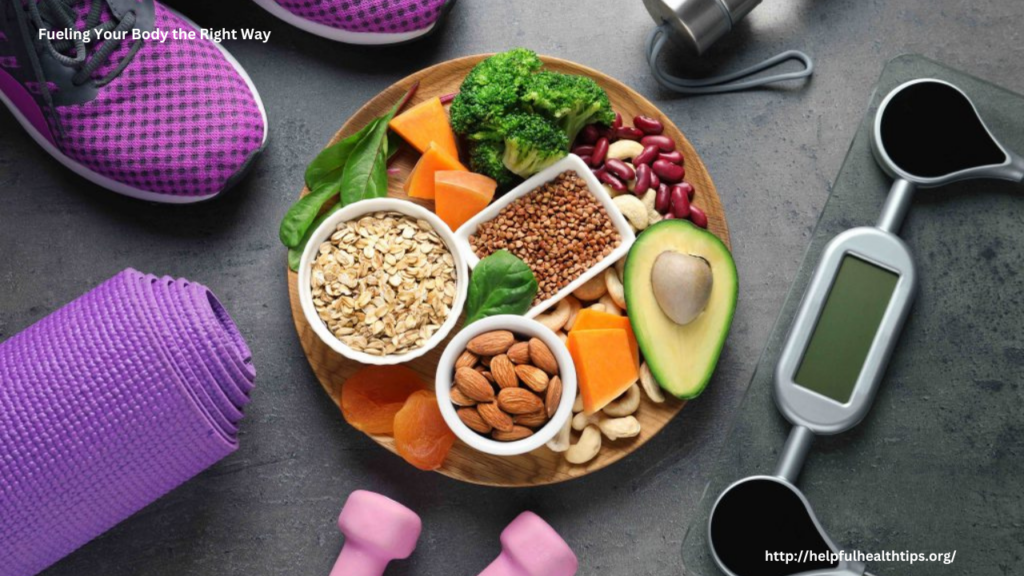Maximizing Your Health: Expert Tips for a Balanced Lifestyle
 Achieving optimal health is not about quick fixes but rather about creating a sustainable and balanced lifestyle. A well-rounded approach that includes proper nutrition, regular exercise, stress management, and adequate rest is key to maintaining long-term wellness. Here are expert tips to help you maximize your health and achieve balance in your daily life.
Achieving optimal health is not about quick fixes but rather about creating a sustainable and balanced lifestyle. A well-rounded approach that includes proper nutrition, regular exercise, stress management, and adequate rest is key to maintaining long-term wellness. Here are expert tips to help you maximize your health and achieve balance in your daily life.
Prioritize a Nutrient-Dense Diet
What you eat has a profound impact on your overall well-being. A nutrient-dense diet provides essential vitamins, minerals, and energy to keep your body functioning at its best.
- Eat Whole Foods: Focus on fresh fruits, vegetables, lean proteins, whole grains, and healthy fats.
- Stay Hydrated: Drink plenty of water throughout the day to support digestion, circulation, and energy levels.
- Limit Processed Foods: Avoid foods high in sugar, sodium, and unhealthy fats, which can lead to inflammation and chronic diseases.
- Practice Portion Control: Eating in moderation helps maintain a healthy weight and prevents overeating.
Incorporate Regular Physical Activity
Exercise is essential for maintaining cardiovascular health, strengthening muscles, and improving mental well-being. The key is to find a routine that fits your lifestyle and keeps you motivated.
- Move Daily: Engage in at least 30 minutes of moderate exercise such as walking, cycling, or swimming.
- Strength Training: Incorporate resistance training exercises to build muscle and maintain bone density.
- Stretch and Recover: Flexibility exercises like yoga and stretching help prevent injuries and improve mobility.
- Stay Active Throughout the Day: Take the stairs, go for short walks, or do quick workouts during breaks to keep your body moving.
Manage Stress Effectively
Chronic stress can take a toll on your physical and mental health. Implementing stress management techniques can help you maintain balance and well-being.
- Practice Mindfulness: Meditation, deep breathing, and gratitude journaling can reduce stress and increase emotional resilience.
- Engage in Relaxing Activities: Hobbies, listening to music, and spending time in nature can help lower stress levels.
- Maintain Social Connections: Strong relationships provide emotional support and contribute to overall happiness.
- Set Realistic Goals: Break tasks into manageable steps and avoid overloading yourself with unrealistic expectations.
Prioritize Rest and Recovery
Getting enough rest is crucial for overall health. Proper sleep allows the body to repair itself and improves cognitive function and mood.
- Establish a Sleep Routine: Aim for 7-9 hours of quality sleep each night by going to bed and waking up at the same time daily.
- Limit Screen Time Before Bed: Reduce exposure to blue light from screens to promote better sleep quality.
- Create a Restful Environment: Keep your bedroom cool, dark, and quiet to improve sleep conditions.
Conclusion
Maximizing your health requires a well-balanced approach that includes healthy eating, regular exercise, stress management, and sufficient rest. By implementing these expert tips into your daily routine, you can achieve optimal health and enhance your quality of life. Remember, small, consistent efforts lead to long-term wellness and vitality.
